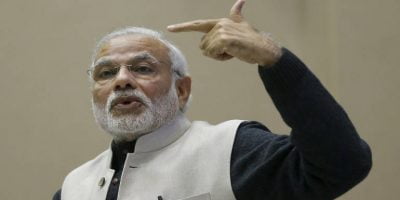GST Council may take final decision on increase at meeting on September 9
Luxury cars and SUVs may become more expensive with the Union Cabinet approving an ordinance to raise the maximum compensation cess that can be levied over and above the 28% GST on such cars, from 15 % to 25%.
However, these changes will not come into effect immediately. The final decision of whether the cess should be raised, and by how much, will be taken by the GST Council, whose next meeting is on September 9.
“The Cabinet has approved an amendment to the CGST (Compensation) law in pursuance of the GST Council’s last meeting. After the implementation of GST, prices of vehicles had substantially come down, whereas smaller vehicles remained untouched,” Finance Minister Arun Jaitley said.
Mr. Jaitley reasoned, “The object of any taxation policy can’t be that its impact is [that] luxury becomes cheaper and an essential item becomes more expensive. If at all relief has to be given, it is to be given to a common man’s item rather than a luxury item. A person who can afford Rs. 1 crore for a car can also afford Rs. 1 crore, 2 lakh.”
The “enabling ordinance” will now be sent to the President for promulgation. Mr. Jaitley was non-committal if the issue would be taken up in the next GST Council meeting.
‘8-10% rise’
Post the introduction of the new indirect tax regime, several carmakers, including makers of luxury cars and SUV who were one of the biggest beneficiaries of GST, had slashed rates to pass the benefits to the consumer.
If the GST Council decides to increase the cess, luxury car prices may to go up by 8-10%, according to industry analysts. While Mercedes cars will be costlier by a minimum of Rs. 3 lakh, an Audi Q7 will see a price increase of Rs. 7 lakh, while an Audi A6 will be costlier by Rs. 5 lakh.
Revenue Secretary Hasmukh Adhia said the categorisation of cars has not changed. “Earlier, those luxury cars where excise duties were levied at 27% or 30%…, the same categorisation is being followed. There is no intention of raising the tax rate on any car, other than those which were put in the luxury category and had high excise and VAT rates.”
According to industry consultants, luxury cars, SUVs and ambulances will be impacted.
Terming it an “unfortunate decision”, the Society of Indian Automobile Manufacturers (SIAM) said while the ordinance is an enabling clause, “it is clearly evident that the government’s intention is to increase the overall tax burden on many different categories of vehicles.”
This will increase the post-GST price of many vehicle categories from pre-GST levels, it warned.
“This is contradictory position of the Government that while on the one hand it has identified the automotive industry as a sunrise sector of Indian economy, [while] on the other hand it is being treated as a demerit product,” it said, adding that all the vehicles that were attracting 24% or 27% excise duty in the pre-GST regime may potentially attract higher tax under GST because of this decision.
“The hike in total tax could be as high as 10% in some cases,” it added.
Roland Folger, MD & CEO, Mercedes-Benz India, said if at all a review of the tax rate was required, it could have been taken after six months when the outcome of the GST regime would have been clearer. “…the hurry to implement the hike in cess is frankly quite surprising.”
Mr. Folger added that the luxury industry is already highly taxed, which constrains its growth. With this proposed measure, the luxury car industry is going to “decelerate.”
“…This decision, contradictory to the requirement of creating a sustained demand for the luxury car in this market, would rather affect the growth momentum adversely.”
‘Redraw plans’
Echoing similar sentiments, Audi India Head Rahil Ansari said the increase in cess will force the firm “to hike our prices to levels higher than in the pre-GST period,” while also make them “redraw our plans for the Indian market based on future projections in this scenario.”
He said this was bound to adversely impact sales by possibly a double-digit reduction and “will consequently reduce revenues for the company, dealers and perhaps also tax revenues for the Government.”
While small in volume, the luxury car segment contributed about 10% to the Indian automobile market.
Mr. Ansari further said if the GST Council decided on a 10% cess increase, it should “postpone the implementation for another 6-12 months to evaluate the real impact of the GST…This will surely prove that the overall effect with a lower cess percentage of 15% is generating higher tax revenues than expected.”
Sridhar V, Partner at Grant Thornton India said, “The government is expected to come up with more clarity if it intends to have a couple of more levels of cess within the overall cess of 25%.”
Rohit Suri, president and MD, Jaguar Land Rover India, said, “We earnestly hope that the Government and the GST Council will give due consideration to this matter and desist from raising the cess and putting a dampener on the positive momentum in demand that the industry had started to witness since July 1.”
[ Source : thehindu ]

